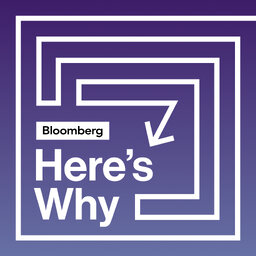Tanks in Ukraine and China's Reopening
The US and Germany will supply Ukraine with top tier battle tanks. How will it help Ukraine fight against Russian aggression? Retired Navy Admiral and Bloomberg Opinion columnist James Stavridis offers his outlook. Bloomberg Executive Editor for Asia Markets Paul Dobson also joins to discuss the push and pull between US and Asian markets. In this episode, we also cover the political instability in Myanmar with Opinion's Clara Ferreira Marques, and columnist Justin Fox explains why retail could surprise in 2023. Listen to the latest Bloomberg Opinion podcast for all of these stories from this week.
In 1 playlist(s)
Bloomberg Opinion
Deeper conversations on the week's most significant developments. Tune in and join in!Social links
Follow podcast
Recent clips

Introducing 'Here's Why' - Complex News Stories Explained
00:30

Airline Mergers and Restaurant Loyalty
35:20

Fossil Fuel Use and Drug Development
35:28
 Bloomberg Opinion
Bloomberg Opinion